 By Ray Rivers
By Ray Rivers
June 13th, 2019
BURLINGTON, ON
“Ben…I’ve got one word for you – Plastics” (The Graduate 1967.)
Read the polls, there isn’t much good to say about the government Ontario voted into office just over a year ago. So the announcement that it is planning to shift the costs of managing packaging waste from the tax base and onto the companies which create it, is worth celebrating.
We shouldn’t get too excited yet, however. The province is really only thinking about appointing a special advisor to recommend options, and results could take months, or even years. Still, this announcement is an encouraging headline from a premier who seems totally anathema to all things environment – killing the cap and trade carbon program, cancelling renewable energy and tree planting projects and fighting the federal government over the carbon tax, and so on.
But there is an ever-growing parade of doom-and-gloom environmental stories which frequent the news media these days. The fact is that an estimated 100 millions tonnes of plastic float in our oceans and some eight million tonnes are added to waterways globally every year.
Virtually all fish species now contain some plastic in their bodies – and so do we.
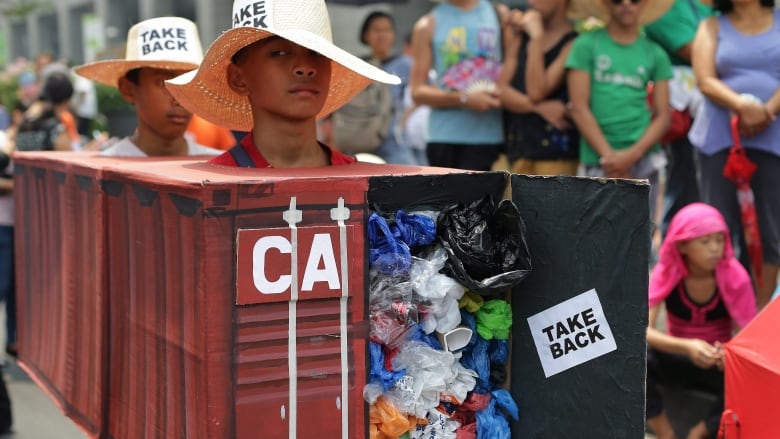
How the waste got out of the country is the first question and why we were so embarrassing long it bringing it back and then fining the people who shipped it out in the first place.
And when it comes to plastic waste, Canada recently became an international environmental pariah. China had stopped importing plastic waste, forcing large generators of the stuff, including Canadians, to divert exports to a number of third world Asian nations, ostensibly for recycling. But much of the waste was burnt or dumped anyway – but over there – out of our sight.
And a lot of it was too contaminated for recycling, prompting some of these nations to send the refuse back. Our own green PM looked particularly red-faced, caught in a squabble over our waste with the mad-dog president of the Philippines, even though the shipments had been made under the former PM’s watch.
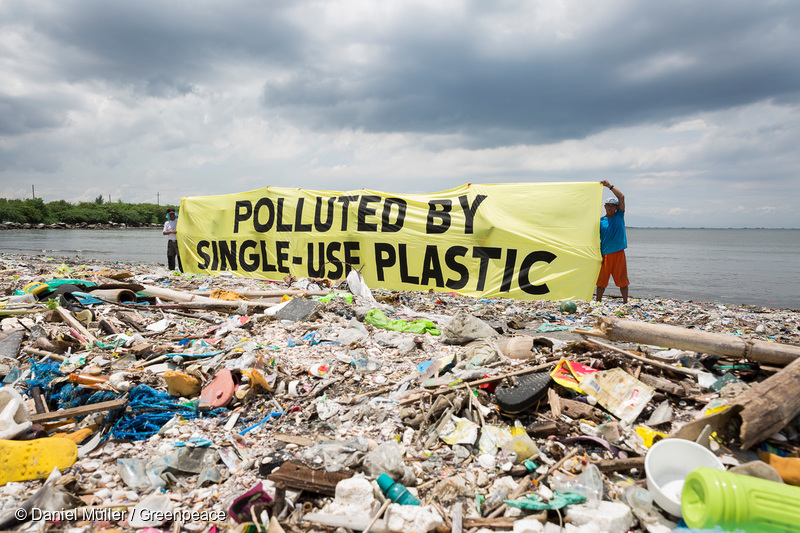
The sign says it all.
Earlier this year 186 nations, signatories to the UN sponsored Basel Commission, added plastic waste to the list of toxic substances not to be exported and dumped in developing nations. The US, almost alone as a non-signatory to the convention, opposed the motion but Canada signed on.
Mr. Trudeau has been under pressure to do more about the plastics problem notwithstanding the Basel amendment. For example, there was a Canadian Council of Ministers of the Environment report out last year calling for zero plastic waste. The EU and some other nations have already announced plans to ban single-use plastics.
Then Mr Singh and the federal NDP recently declared they would ban single-use plastics by 2022, were they to assume the throne. So Trudeau had no option but to announce he’d do a ban even a year earlier (2021). But given the legislative agenda it couldn’t happen until after the election in October anyway. So it’s a perfect election promise.
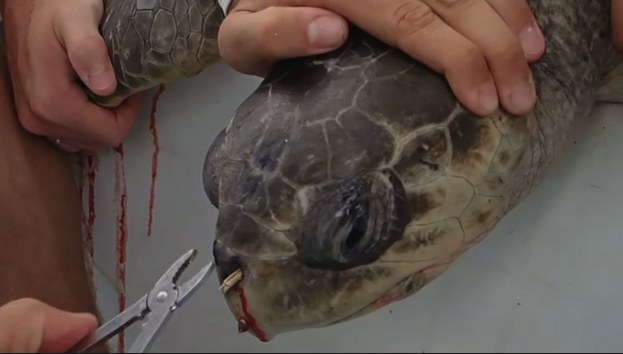
The damage from single use plastics is seen at a painful environmental level.
Now everyone is wondering whether Mr. Scheer will fall in line and also announce a ban on single use plastics when he brings out his long-promised environment plan. This plan which has been promised and delayed almost since he assumed the leader’s mantle is now targeted for the end of this month. People need to contain their excitement though, recalling that his predecessor, Mr. Harper, never did deliver his promised climate action plan.
It is a reasonable assumption that Mr. Ford’s primary motivation for wanting to shift the cost of waste to industry is to improve his government’s bottom line. Nevertheless this initiative should provide an incentive for manufacturers to reduce the amount of packaging they use.
Economists call it internalizing the externalities – companies will need to find better ways of packaging their products or the products will cost more and be less competitive in the market place. Ironically for Mr. Ford, that is exactly the logic behind the federal carbon tax – get off the carbon bandwagon or be prepared to pay more.
Ford may also be thinking ahead about a possible increase in blue box items should his tearing up the Beer Store’s contract result in termination of their role as a used alcohol container depot. In any case one must remember that the Blue Box program was never intended to reduce our waste, just to divert it from landfill or incineration.
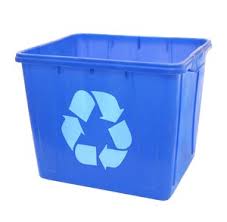
Beer bottles in Blue Boxes?
And the blue box has been more or less successful in that regard. But the program is costly in economic terms as well as in other ways – given the duplication of collection, etc. So shifting the responsibility for packaging waste back to industry might lead to a better option. In any case, not all of the waste, and plastic in particular, can be recycled and much of it ends up in landfill anyway.
Getting rid of single use plastics will have an impact on the oil producing sector, as well. While estimated at only 3% of today’s 100 million barrel global production, a universal single-use plastics ban will amount to another shovel of dirt on the grave of a dying industry. And how long will it be before even more plastics are heading for this future?
That must concern Mr. Ford’s ideological twin and defender of all that’s back to the future in Alberta. Mr. Kenny won his election on a promise go back in time, to expand rather than oversee the demise of Alberta’s number one revenue maker. Shuttering oil sands production and cancelling proposed pipelines was never something he’d dreamt of.
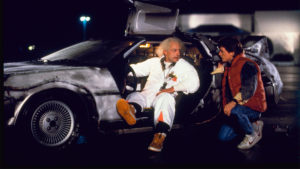
Most of us had even heard of climate change when Back to the Future was on our screens.,
But Albertans who read the papers should have understood that Kenny’s promises to expand the province’s oil industry were nothing more than dreams, and an unattainable fantasy. I’m also a fan of ‘Back to the Future’, the epic 1980’s sci-fi movie. But even then, in 1985, before most of us had even heard of climate change, Doc and Marty’s DeLorean ended up being powered with garbage instead of petroleum.
 Ray Rivers writes regularly on both federal and provincial politics, applying his more than 25 years as a federal bureaucrat to his thinking. Rivers was once a candidate for provincial office in Burlington. He was the founder of the Burlington citizen committee on sustainability at a time when climate warming was a hotly debated subject. Ray has a post graduate degree in economics that he earned at the University of Ottawa. Tweet @rayzrivers
Ray Rivers writes regularly on both federal and provincial politics, applying his more than 25 years as a federal bureaucrat to his thinking. Rivers was once a candidate for provincial office in Burlington. He was the founder of the Burlington citizen committee on sustainability at a time when climate warming was a hotly debated subject. Ray has a post graduate degree in economics that he earned at the University of Ottawa. Tweet @rayzrivers
Background links:
The Graduate – Blue Box Changes – Blue Box – Ford’s Shift –
Philippines Squabble – US Waste Export – Consuming Micro Plastics –
Banning Single-Use – Basel – Oil Industry –















